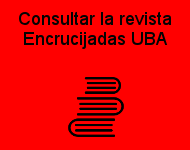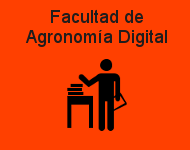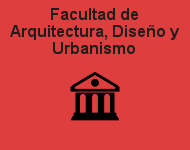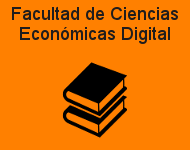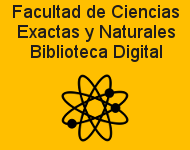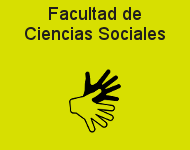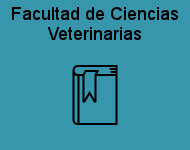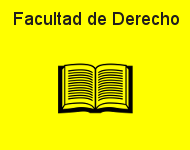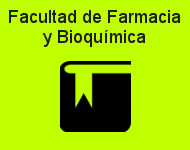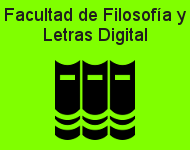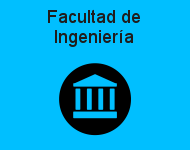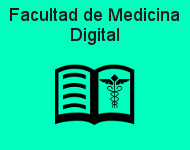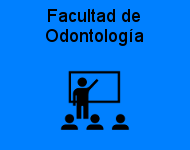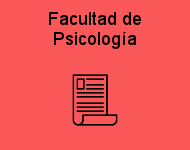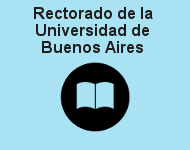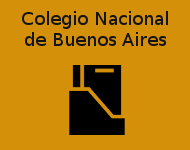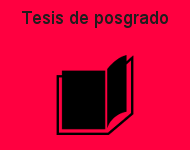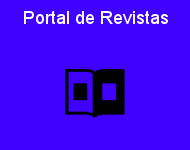O circuito de bailes, o Funk Proibido e a comunidade imaginada: balbucios e desafios da representação na música das favelas
Pimentel, Ary
En: RUNA, archivo para las ciencias del hombre; Vol. 38 Núm. 1 (2017); 93-109
Temas: Forbidden Funk - Baile Circuit - Baile Funk - Imagined Community - Carioca Funk Parties - Funk Prohibido - Circuito - Baile - Comunidad imaginada - Fiesta funk - Funk Proibido - Circuito - Baile - Comunidade imaginada - Festa funk
Contenido: The subject of this paper lies on a song compilation recorded between the years of 2000 and 2010 at bailes funk of the Rio de Janeiro’s favelas, and disseminated via homemade CD-Rs, through which we address the constitution of a musical scene at Rio de Janeiro’s periphery. It occurs due to factors which intervened at the form on how were framed the speeches propagated through the lyrics of the musical subgenre named Proibidão. This research broaches the specific case of live-presented street party songs, sold at the informal market slums’ stands CDs. The chosen method to comprehend the slums operation as “emotional communities” was reflecting upon the production and the hearing within the musical subgenre. A subgenre which express a micro-location identitary process, glance shifting our attention to zones where new intersubjective experiences emerge, where cultural values, representation strategies, and the marks of a small collectivity belongingness are all negotiated.
...ver más Tipo de documento: info:eu-repo/semantics/article | Formato: application/pdf
Editor: Instituto de Ciencias Antropológicas - FFyL-UBA
Fuente: Revistas Científicas de FILO
Llegar a ser alferez
Remorini, Carolina - Jacob, Analía - Morgante, María Gabriela - Teves, Laura
En: RUNA, archivo para las ciencias del hombre; Vol. 41 Núm. 2 (2020): Dossier: Debates acerca de la Antropología del Estado y las Políticas Públicas en contextos latinoamericanos contemporáneos
Temas: Ethnography - Childhood - Development - Skills - Religious Ceremonies - Etnografía - Niñez - Desarrollo - Habilidades - Fiestas Patronales - Etnografia - Criança - Desenvolvimento - Habilidades - Festa Padroeira
Contenido: We ethnographically characterize children and young learning through their participation in religious celebrations taking place in a town located in the Calchaqui Valleys (Salta). We focus on the developing of crucial skills that allow children and young to be part of activities that require cooperation relationship in the framework of their participation in an institution: the group of “alfereces”. We performed interviews with “alfereces” of different age and gender as well as observations and visual record of the celebration and activities related to it. We identified the relevant features of this role: how alfereces are initiated, which skills they should develop, which activities they perform, and the conditions that favor or limit the continuity of this institution. The Celebration requires the coordinated effort of the different groups of alfereces, institutions, and neighbors, and constitutes the only instance for learning and practice of relevant skills to become alferez. In that framework, intergenerational exchange and reciprocity are key for its development.
...ver más Tipo de documento: info:eu-repo/semantics/article | Formato: application/pdf
Editor: Instituto de Ciencias Antropológicas - FFyL-UBA
Fuente: Revistas Científicas de FILO
Antes de Franz Boas:mujeres pioneras de la antropología norteamericana
Tarducci, Monica
En: RUNA, archivo para las ciencias del hombre; Vol. 36 Núm. 2 (2015); 57-73
Temas: History of anthropology - Anthropologist women - Feminism - Gender - Evolutionism - Historia de la Antropología - Antropólogas - Feminismo - Género - Evolucionismo - História da antropologia - Mulheres antropólogas - Feminismo - Gênero - Evolucionismo
Contenido: One consequence of the impact of the feminist movement in anthropological theory and practice was the recovery of the life and work of women who, despite occupying a peripheral site, made significant contributions to the field. In this paper I focus on the trajectories of these pioneers who, in a time of fast socioeconomic changes (last decades or xix Century and the early xx Century) and despite they were self taught, were fundamental to the professionalization of anthropology.
...ver más Tipo de documento: info:eu-repo/semantics/article | Formato: application/pdf
Editor: Instituto de Ciencias Antropológicas - FFyL-UBA
Fuente: Revistas Científicas de FILO
Tras las huella del silencio: Potosí, los incas y Toledo
Platt, Tristan - Quisbert, Pablo
En: RUNA, archivo para las ciencias del hombre; Vol. 31 Núm. 2 (2010); 115-152
Temas: Incas - Spaniards - Potosí (siglo XVI) - Concealment of Mines - Historical Silences - History of Myths - Incas - Españoles - Potosí (siglo XVI) - Encubrimiento de Minas - Silencios Históricos - Historia de Mitos - incas - espanhóis - Potosí (século XVI) - dissimulação de minas - silêncios históricos - historia de mitos
Contenido: Why did the Aymara lords of Charcas and Inca Paullo, after dis-covering the silver-mines of Porco in 1538 to Hernando Pizarro, remain silent about Potosí (just a few leagues distant) which was not discovered to the Spanish until April 1545? Constructing a mosaic from apparently disconnected data, this article reviews current versions and interrogates a curious silence present in the sources. Reconstructing a hitherto undetected network of Incas and Spaniards, we show that, rather than the providential find of a lone yanacona (the received version), the dis-covery of Potosí may be seen as confirmation of the policy of “obedience” underlying the gift of Porco, but now orchestrated from Vilcabamba by Inca Manco, Paullo's brother and rival, until his death at the end of 1544. And the policy now offered support for the King and the New Laws (1542) against the greater threat represented by Gonzalo Pizarro and the encomenderos. We note Viceroy Toledo's promotion of the “providential legend”, and the alternative version by Guaman Poma of the “discovery” of Potosí as, indeed, an Inca initiative, even asserting that the town had been founded by Túpac Yupanqui. This version converges with recent geological and archaeological research.
...ver más Tipo de documento: info:eu-repo/semantics/article | Formato: application/pdf
Editor: Instituto de Ciencias Antropológicas - FFyL-UBA
Fuente: Revistas Científicas de FILO
Quiroga, Laura
En: RUNA, archivo para las ciencias del hombre; Vol. 24 Núm. 1 (2003); 151-171
Temas: Belén - clasificaciones museográficas - etnía - señorío - resignificación
Contenido: Este trabajo propone rastrear la formación de la categoría Belén como categoría de análisis para la reconstrucción del pasado prehispánico regional. Se establece una relación estrecha entre las clasificaciones estilísticas elaboradas a principios de siglo con el fin de ordenar las colecciones de materiales arqueológicos y la investigación sobre el pasado prehispánico. En este sentido, se postula una tensión cuando las categorías surgidas de la clasificación estilística y museográfica se resignifican como reflejo de unidades sociales reales del pasado.
...ver más Tipo de documento: info:eu-repo/semantics/article | Formato: application/pdf
Editor: Instituto de Ciencias Antropológicas - FFyL-UBA
Fuente: Revistas Científicas de FILO
Entre las fincas y la escuelita bíblica… o policial Un análisis etnográfico sobre el cuidado infantil en contextos rurales de Orán, Salta
Leavy, Pía
En: RUNA, archivo para las ciencias del hombre; Vol. 40 Núm. 2 (2019): Dossier: “Entre experiencias y tramas institucionales. Niños, niñas, adolescentes y familias”
Temas: Child care - Childhood - Ethnography - Rural work - Gender - Cuidado infantil - Niñez - Etnografía - Trabajo rural - Género - Cuidado infantil - Criança - Etnografia - Trabalho rural - Gênero
Contenido: The article analyzes from an anthropological perspective the social and cultural organization of child care in rural contexts from Oran (Salta, Argentine). This methodological theoretical perspective recovers feminist´s research on care and social studies on childhood, to explore the processes of childhood construction in rural contexts in Salta and proposes to think of children as active subjects in care organization. The ethnographic work was carried out in rural sectors with Creole and Ava-Guarani families, from Argentine and Bolivia. State interventions are insufficient to respond to the demands of child care in rural contexts, marked by labor informality. Children assume responsibilities in care tasks and have a greater degree of autonomy. Ethnographic perspective allows us to understand the wide acceptance of the children’s police school, as a space that allows defamiliarizing child care tasks.
...ver más Tipo de documento: info:eu-repo/semantics/article | Formato: application/octet-stream
Editor: Instituto de Ciencias Antropológicas - FFyL-UBA
Fuente: Revistas Científicas de FILO
Entre lo legal y lo ilegal
Salerno, Virginia - Grzegorczyk, Micaela
En: RUNA, archivo para las ciencias del hombre; Vol 44 No 2 (2023): Antropología de lo público; 85-103
Temas: Archaeological Heritage - Legislation - Private Appropriation - State - Margins - Patrimonio Arqueológico - Legislación - Apropiación Privada - Estado - Márgenes - Património Arqueológico - Legislação - Apropriação Privada - Estado - Margens
Contenido: In this paper, we present the experiences of a group of actors from different localities in Buenos Aires who own and collect archaeological materials. We consider the local contexts in which the objects acquire significance and the meanings disputed in the face of the regulations in force that define them as public heritage assets, placing the practices of their private appropriation on the margins of the legal sphere. The tensions generated and the arguments put forward to justify the continuity of the experiences analyzed allow us to consider how the interplay between the legal and the illegal is sustained by the affirmation of a series of shared principles -between these actors and those who represent legal practices- regarding archaeological objects, their importance for the present and the role of the state in their preservation and care.
...ver más Tipo de documento: info:eu-repo/semantics/article | Formato: application/pdf
Editor: Instituto de Ciencias Antropológicas - FFyL-UBA
Fuente: Revistas Científicas de FILO
Más allá de la agencia y las culturas infantiles. Reflexiones a partir de una investigación etnográfica con niños y niñas mapuche
Szulc, Andrea
En: RUNA, archivo para las ciencias del hombre; Vol. 40 Núm. 1 (2019); 53-63
Temas: Children’s agency - Children’s cultures - Childhood - Mapuche people - Ethnography - Agencia infantil - Culturas infantiles - Niñez - Pueblo Mapuche - Etnografía - Agência infantil - Culturas infantis - Infância - Povo mapuche - Etnografía
Contenido: The field of social studies on childhood has clearly developed and broaden in the last decades, through a reconceptualization of childhood as a sociocultural construction, with an emphasis on children’s active participation in social life, especially among scholars from the core countries who have spread the concept of “childhood agency” and “children’s cultures”. In this paper I analyze the assumptions and risks implied in the ways such categories are being used, drawing from my research with Mapuche indigenous children in the province of Neuquén, carried out since 2001. By contrasting this two powerfull concepts for marginalizaed theoretical and indigenous perspectives, I will argue for an approach that contextualices children’s agency and children’s cultural production in sociohistorical and cultural terms, within intergenerational and interethnic power relations, and those of class and gender.
...ver más Tipo de documento: info:eu-repo/semantics/article | Formato: application/pdf
Editor: Instituto de Ciencias Antropológicas - FFyL-UBA
Fuente: Revistas Científicas de FILO
Más allá del multiculturalismo. Investigación comunitaria intercultural en el Consejo Regional Indígena del Cauca, Tierradentro, Colombia (1991-2015)
Levalle, Sebastián
En: RUNA, archivo para las ciencias del hombre; Vol. 39 Núm. 1 (2018)
Temas: Research - Indigenous - Intercultural - Multiculturalism - Colombia - Investigación - Indígena - Interculturalidad - Multiculturalismo - Colombia - Pesquisa - Indígenas - Intercultural - Multiculturalismo - Colômbia
Contenido: In some Latin American countries, indigenous organizations have developed their own lines of research. In this paper I address the research practices undertaken by the organic intellectuals of the Consejo Regional Indígena del Cauca in the Colombian sub-region of Tierradentro. To account for these practices I resort to the category of “intercultural community research”, a term that recovers several categories with which indigenous researchers in this area reflect on their own activity. In this work I argue, on the one hand, that these investigations have allowed to strengthen autonomy and to recreate the territoriality of indigenous communities. On the other hand, I suggest that they constitute a response to the epistemic violence reproduced in the disciplinary frameworks of modern sciences. In this way, such initiatives allow to challenge the dialogue of knowledge that preaches multiculturalism, a dialogue in which modern science retains a position of privileged universality.
...ver más Tipo de documento: info:eu-repo/semantics/article | Formato: application/pdf
Editor: Instituto de Ciencias Antropológicas - FFyL-UBA
Fuente: Revistas Científicas de FILO
Más allá de la apropiación criminal de niños: el surgimiento de organizaciones de personas "adoptadas" que buscan su "identidad biológica" en Argentina
Gesteira, Soledad
En: RUNA, archivo para las ciencias del hombre; Vol. 35 Núm. 1 (2014); 61-76
Temas: Identity - Rights - Organizations of Adoptees - Abuelas de Plaza de Mayo - State - Identidad - Derechos - Organizaciones de personas adoptadas - Abuelas de Plaza de Mayo - Estado - Identidade - Direitos - Organizações de pessoas adotadas - Abuelas de Plaza de Mayo - Estado
Contenido: This article analyzes the emergence of organizations of adoptees seeking their “biological identity” in Argentina and their claims to the state as a formal guarantor of their “right to identity”. This analysis involves looking into the impact of the problematization of the criminal appropriation of children in our country as a result of the work of the Abuelas de Plaza de Mayo in searching for their grandchildren, kidnapped during Argentina’s last military dictatorship (1976-1983).The emergence of these organizations of “adoptees” in the early 2000’s redefined the meanings associated at the moment to the “right to identity”. The way these organizations use the terms “biological”, “original”, and “true” to characterize “identity” points to the meaning, definition and precision of their problematic, which is both different and similar to Abuelas’.
...ver más Tipo de documento: info:eu-repo/semantics/article | Formato: application/pdf
Editor: Instituto de Ciencias Antropológicas - FFyL-UBA
Fuente: Revistas Científicas de FILO
., .
En: RUNA, archivo para las ciencias del hombre; Vol. 8 Núm. 2 (1957)
Tipo de documento: info:eu-repo/semantics/article | Formato: application/pdf
Editor: Instituto de Ciencias Antropológicas - FFyL-UBA
Fuente: Revistas Científicas de FILO
., .
En: RUNA, archivo para las ciencias del hombre; Vol. 12 Núm. 1-2 (1970)
Tipo de documento: info:eu-repo/semantics/article | Formato: application/pdf
Editor: Instituto de Ciencias Antropológicas - FFyL-UBA
Fuente: Revistas Científicas de FILO
Antropología Biológica
Dejean, Cristina Beatriz - Ramallo, Virginia - García-Mancuso, Rocío
En: RUNA, archivo para las ciencias del hombre; Vol. 43 Núm. 2 (2022): Dossier: Antropología Biológica; 7-12
Temas: Presentación
Tipo de documento: info:eu-repo/semantics/article | Formato: application/pdf
Editor: Instituto de Ciencias Antropológicas - FFyL-UBA
Fuente: Revistas Científicas de FILO
Bórmida, Marcelo
En: RUNA, archivo para las ciencias del hombre; Vol. 9 Núm. 1-2 (1959)
Tipo de documento: info:eu-repo/semantics/article | Formato: application/pdf
Editor: Instituto de Ciencias Antropológicas - FFyL-UBA
Fuente: Revistas Científicas de FILO
Un breve diálogo intergeneracional
Radovich, Juan Carlos - Cardini, Laura
En: RUNA, archivo para las ciencias del hombre; Vol. 43 Núm. 3 (2022): Número Especial 70 Aniversario; 559-569
Temas: Interview - Intergenerational dialogue - Local Anthropologies - Transformations - Journal Runa - Entrevista - Diálogo intergeneracional - Antropologías locales - Transformaciones - Revista Runa - Entrevista - Diálogo intergeracional - Transformações - Antropologias locais - Revista Runa
Contenido: This article consists of an interview conducted by Laura Cardini from the Universidad Nacional de Rosario with Juan Carlos Radovich from the Universidad de Buenos Aires, two professionals who belong to different generations of anthropologists, in which various topics related to professional training processes are discussed according to the different historical contexts; compulsory readings and silenced readings at different moments of professional training. Additionally, they reflect on the transformations different Anthropologies suffered in light of local itineraries and contexts. Finally, they discuss the place Ethnography holds in professional work and the role played by Runa journal as a formative reading, along with the challenges faced by local Anthropologies in today’s world.
...ver más Tipo de documento: info:eu-repo/semantics/article | Formato: application/pdf
Editor: Instituto de Ciencias Antropológicas - FFyL-UBA
Fuente: Revistas Científicas de FILO
Beltramin, Jorge Brower
En: RUNA, archivo para las ciencias del hombre; Vol. 33 Núm. 2 (2012); 221-223
Contenido: Burke, Peter. Hibridismo Cultural. Trad. Sandra Chaparro Martínez. Madrid: Ediciones Akal, 2010. ISBN: 978-84-460-2993-9, pp. 158.
...ver más Tipo de documento: info:eu-repo/semantics/article | Formato: application/pdf
Editor: Instituto de Ciencias Antropológicas - FFyL-UBA
Fuente: Revistas Científicas de FILO


